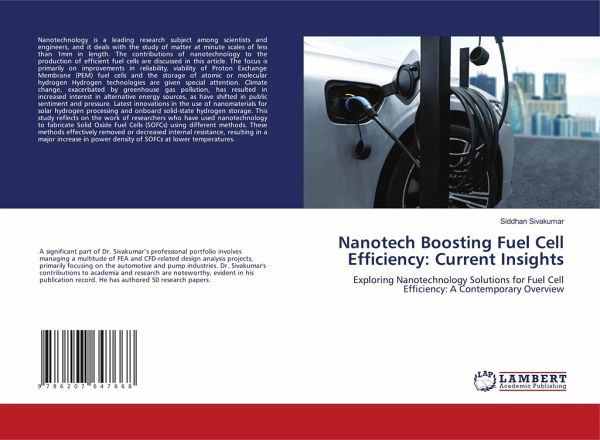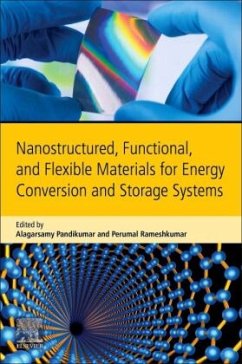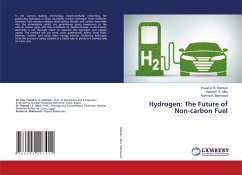
Nanotech Boosting Fuel Cell Efficiency: Current Insights
Exploring Nanotechnology Solutions for Fuel Cell Efficiency: A Contemporary Overview
Versandkostenfrei!
Versandfertig in 6-10 Tagen
29,99 €
inkl. MwSt.

PAYBACK Punkte
15 °P sammeln!
Nanotechnology is a leading research subject among scientists and engineers, and it deals with the study of matter at minute scales of less than 1mm in length. The contributions of nanotechnology to the production of efficient fuel cells are discussed in this article. The focus is primarily on improvements in reliability, viability of Proton Exchange Membrane (PEM) fuel cells and the storage of atomic or molecular hydrogen Hydrogen technologies are given special attention. Climate change, exacerbated by greenhouse gas pollution, has resulted in increased interest in alternative energy sources,...
Nanotechnology is a leading research subject among scientists and engineers, and it deals with the study of matter at minute scales of less than 1mm in length. The contributions of nanotechnology to the production of efficient fuel cells are discussed in this article. The focus is primarily on improvements in reliability, viability of Proton Exchange Membrane (PEM) fuel cells and the storage of atomic or molecular hydrogen Hydrogen technologies are given special attention. Climate change, exacerbated by greenhouse gas pollution, has resulted in increased interest in alternative energy sources, as have shifted in public sentiment and pressure. Latest innovations in the use of nanomaterials for solar hydrogen processing and onboard solid-state hydrogen storage. This study reflects on the work of researchers who have used nanotechnology to fabricate Solid Oxide Fuel Cells (SOFCs) using different methods. These methods effectively removed or decreased internal resistance, resulting in a major increase in power density of SOFCs at lower temperatures.














